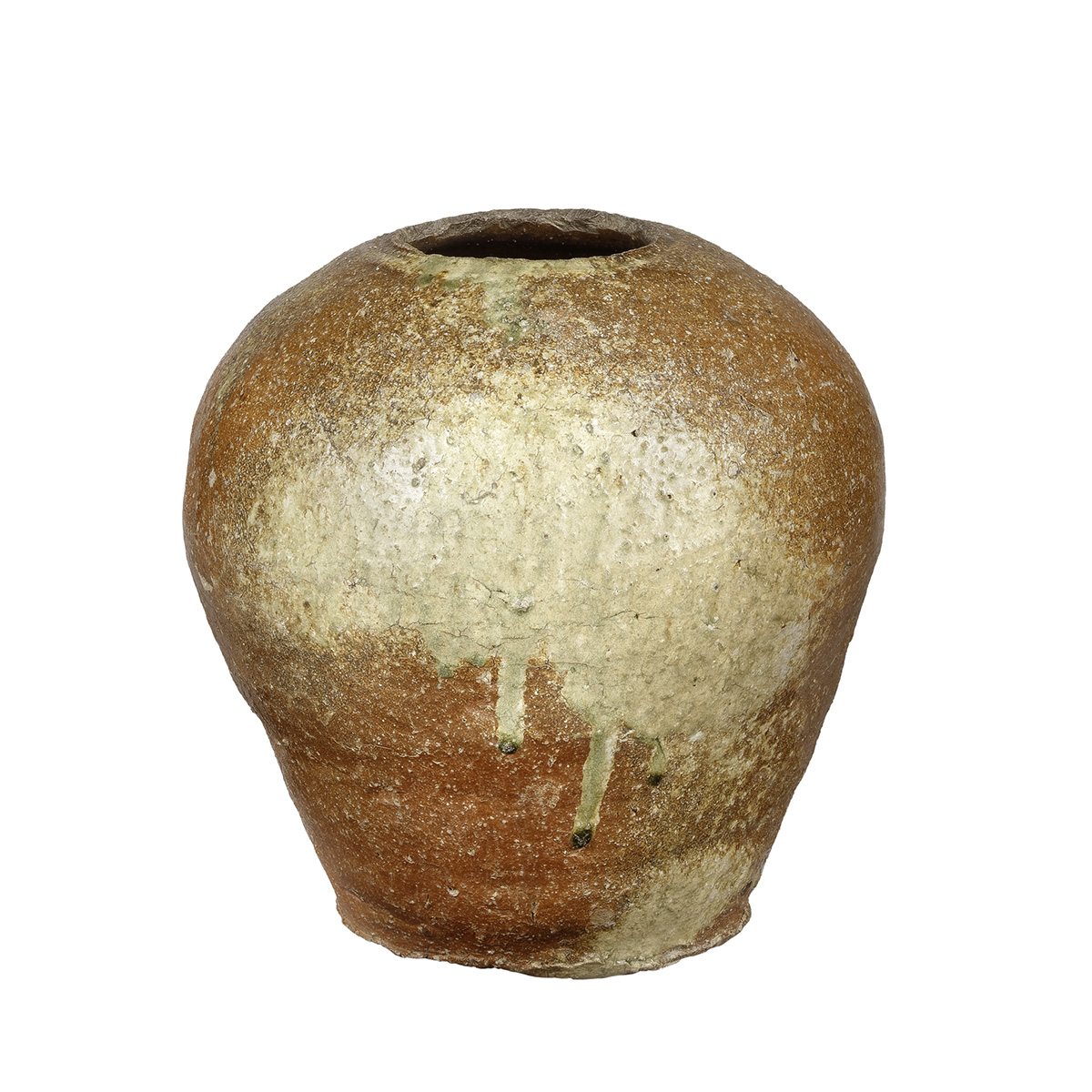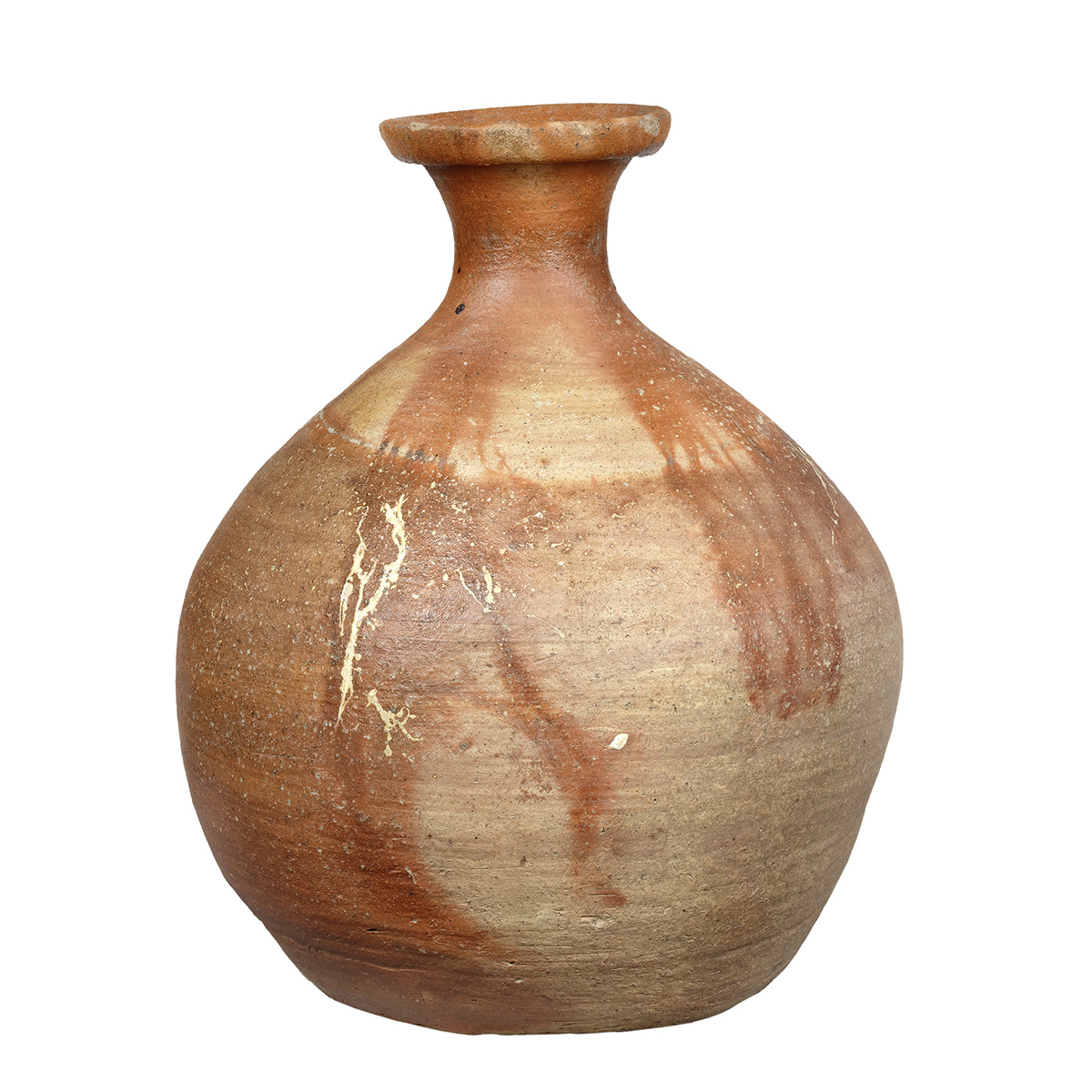Shigaraki tsubo
Ceramic
- Contact Us
-
Period
Muromachi period, 15th-16th C.
-
Box
Awasebako (collector’s box)
Description
Ko-Shigaraki tsubo
Ancient jar Shigaraki ware
Shigaraki ware is a type of stoneware pottery made in Shigaraki area, Japan. The kiln is one of the Six Ancient Kilns in Japan.
The development of kilns during the medieval period are thought to have taken place through the transformation of Sue ware technology. In the later half of the Heian period, Sue ware production came to an abrupt decline, with production now centralizing in the Owari, Mino, Bizen, and Omi provinces.
Political collapse in the Heian period caused Sue ware potters to begin producing inexpensive wares such as tsubo (jars), kame (wide mouthed bowls), and suribachi (mortars or grinding). The Sue ware workshops began producing in characteristic regional blocks. All these led to the development of kilns in the region known as the ‘Six Old Kilns’. The regional blocks consisted of Seto, Echizen, Tokoname, Bizen, Tamba, and Shigaraki.
The name Shigaraki describes a collective group of ceramic products made in a similar geographic area. Shigaraki ware is said to have begun when tiles were constructed for the Emperor Shōmu’s Shigaraki-no-miya Palace in 742. However, evidence has shown old kiln remains in the ruins of Shigaraki village dating back to the Kamakura period and early in the Muromachi period. It is suggested that Bizen potters traveled to Shigaraki and began producing works there because early Shigaraki wares appear to have been influenced by Bizen wares. It is often hard to distinguish wares from both the Kamakura and Muromachi periods because of the embedded granules of feldspar that give both wares their striking appearance.
The town of Shigaraki was formed up of eighteen independent communities along the Daido River in the valley in the most southern tip of Shiga prefecture. Three of the earliest kiln sites may date back to 1278. The communities were Kamagatani, Minami Matsuo in Nagano, and Goinoki in Koyama. These sites are suggested to have been the center of the Shigaraki industry in the old days.

